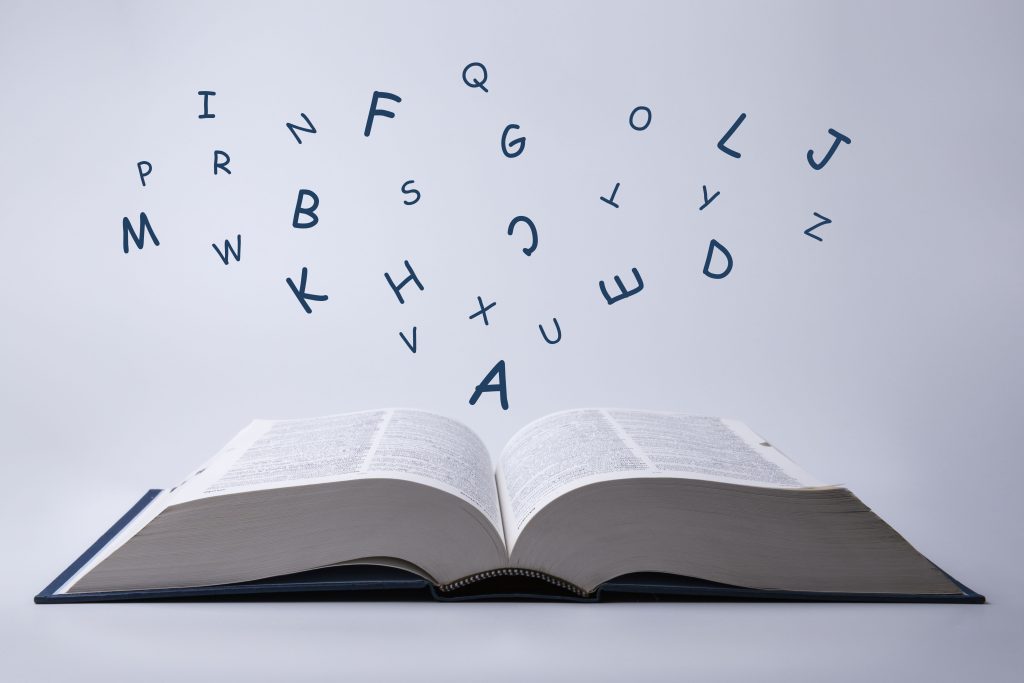A language dictionary is more than just a list of words and their definitions. It’s a resource that helps you understand how language works. It gives you meanings, pronunciations, word origins, synonyms, and examples of usage.
But having one is not enough. You’ve got to know how to use it the right way, too. Using a dictionary effectively can help you to:
Expand Your Vocabulary
You’ve encountered a new word you don’t know when reading a book, browsing the web, or having a conversation. Instead of skipping over this, why not look it up?
This is especially key when you’re just learning a language. In that case, the right dictionary gives you more than just the definition. It can show you how the word is used in sentences, as well as give you synonyms and sometimes even related words.
Say you come across the word “serendipity” while reading. You look it up and find that it means “the occurrence of events by chance in a happy or beneficial way.” Now, some dictionaries might offer example sentences like:
“Meeting her at the cafe was pure serendipity.”
This helps you understand not only the meaning but how to use the word in real life.
Tip: Create a personal word list. Keep track of the new words you learn and challenge yourself to use them in your writing or conversations. By actively using these words, they become part of your vocabulary and significantly improve your language learning experience.
Master Pronunciation
Pronunciation can be tricky, especially for words you’ve only seen in writing. Here’s where a dictionary shines again. Many online dictionaries now come with audio pronunciations. You don’t have to guess or feel awkward asking someone how to say a word. Just click the audio button, listen, and repeat.
Tip: Record yourself saying the word after listening to the dictionary’s pronunciation. You’ll notice whether you’re getting closer to the correct verbal expression. It’s a quick way to improve your speech.
Clarify Word Meanings in Context

Ever had a moment where you thought you knew what a word meant, but then you saw it used in a completely different way? That’s because many words have multiple meanings. Using a dictionary helps you figure out which meaning fits the context.
When you look up a word, most dictionaries list all its possible meanings. Your job is to pick the one that makes the most sense in the situation you’re dealing with.
Take the word “lead,” for example. It could mean “to guide” (lead the team) or refer to a type of metal (lead pipes). Let’s say you read, “The lead was heavy in his hand.” Based on the context, the dictionary will tell you that this refers to the metal, not leadership.
Tip: Pay attention to example sentences provided by the dictionary. They’re there for a reason—to show how the word works in everyday use.
Improve Writing and Communication
Want to level up your writing? A dictionary can do more than just give you meanings. It can help you find the right words to say exactly what you mean.
Say you’ve been using the word “good” over and over again. It’s fine, but you want something a bit more expressive. A quick thesaurus check will offer you alternatives like “excellent,” “superb,” or “outstanding.”
Tip: Swapping simple words for more complex ones isn’t always the best move. You want to be clear, not confusing. For instance, using extraordinary when you mean good can make things feel exaggerated if it doesn’t fit the situation.
Learn Grammar and Usage Rules
Many dictionaries come with extra sections that explain grammar rules, common word usage mistakes, and even idiomatic expressions. These can be a goldmine, especially when you’re unsure about how to structure sentences or use certain phrases, given the diverse grammatical rules in different languages.
When you look up a word, check if the dictionary includes notes on its correct usage. Some words are often misused, and dictionaries often point this out to help you avoid making those mistakes. They also highlight whether the word is formal or informal, or if it’s commonly misused in specific situations.
Take the word “affect” versus “effect,” for instance. So many people get these mixed up. A quick search will tell you that “affect” is usually a verb (e.g., “The rain will affect our plans.”) and “effect” is usually a noun (e.g., “The new law had a positive effect on the economy.”). With just a couple of minutes spent checking the dictionary, you save yourself from making a common grammar mistake.
Tip: Explore the extra sections of the dictionary. Some even have guides on punctuation, verb tenses, and how to structure formal writing.
Closing Thoughts
From improving pronunciation to avoiding grammar pitfalls, the benefits of a language dictionary are endless. So, next time you’re unsure of a word, take a moment to use the dictionary. You’ll be surprised how much it can boost your confidence and communication skills.







